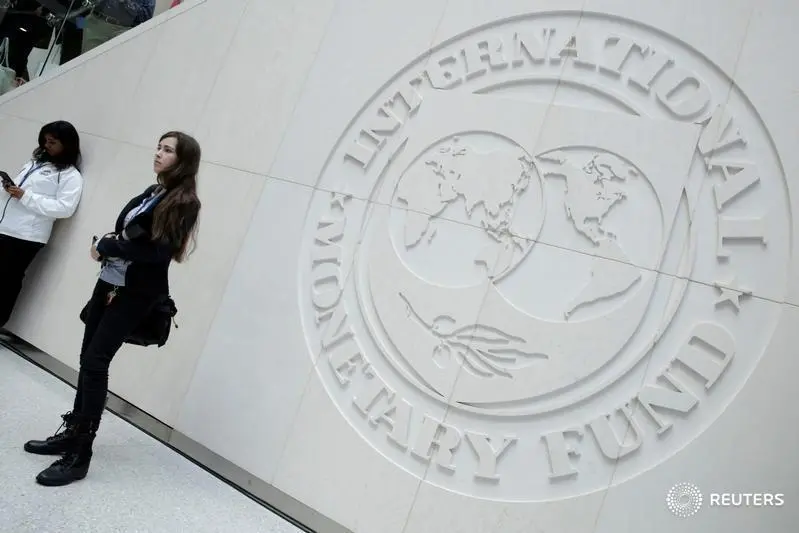PHOTO
BEIRUT - Lebanese banks said the country's draft agreement with the International Monetary Fund was "unlawful" and "unconstitutional" in a letter sent to the IMF by an adviser of the Association of Banks in Lebanon (ABL) and seen by Reuters.
The staff-level agreement (SLA) between the IMF and Lebanon pledged $3 billion in financing over four years to help the small Mediterranean nation recover from a financial meltdown that has seen the currency lose more than 90% of its value and has left most people poor.
A final agreement is conditional on the implementation of a number of measures, including the passage of a banking restructuring strategy that "recognizes and addresses upfront the large losses in the sector, while protecting small depositors and limiting recourse to public resources," according to the Fund.
The draft agreement also called on Lebanon's parliament to approve an emergency bank resolution law and audits of the 14 biggest banks, representing the bulk of the sector.
Lebanese banks have long called for financial sector losses, estimated to be in excess of $70 billion, to be borne mostly by the Lebanese state, blaming the losses on decades of unsustainable financial policies, waste and corruption.
The ABL "holds very serious reservations on the recent SLA and believes that the delivery of some prior actions as well as some program milestones are likely to further harm Lebanon's economy, probably in an irreparable manner," the letter dated June 21 said.
It says the agreement is not based on an economic vision for Lebanon, relies on "misguided Lebanese 'civil society' talking points," and could "unfairly disenfranchise ABL."
"Implementation of the SLA would be unlawful or, in the alternative, unconstitutional," says the letter, signed by ABL adviser Carlos Abadi, managing director at New York-based financial advisory firm DecisionBoundaries.
Reuters could not reach the ABL outside Beirut office hours. The IMF did not respond to a request for comment. Lebanon's deputy prime minister, the architect of the plan, did not immediately respond to a request for comment.
The Lebanese government's financial recovery plan, adopted May 20, calls on commercial banks to be first in line to bear losses, followed by the central bank and then public assets.
The letter says sharing out the losses in such a way would be unfair because it would shift the burden onto commercial banks despite the vast majority of the losses being incurred at the central bank.
To plug the financial hole, the letter calls instead for pooling state assets such as buildings and land in an investment corporation, turning up to $30 billion in deposits into Lebanese pounds to be repaid over a decade, and reversing foreign exchange transactions that occurred after the onset of the crisis in 2019 from pounds to dollars.
"The unwind of these book-entry FX transactions would relieve (the central bank) of $10 – 15 billion in liabilities," it says.
It also calls for use of the central bank's roughly $15 billion in gold reserves.
"Reserves are just that: a buffer kept in reserve for a rainy day and the storm in Lebanon is of biblical proportions," it says.
(Reporting by Timour Azhari in Beirut and Rodrigo Campos in New York; writing by Timour Azhari; Editing by Rosalba O'Brien)





















